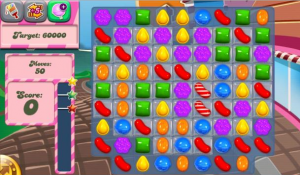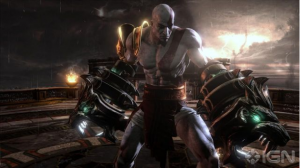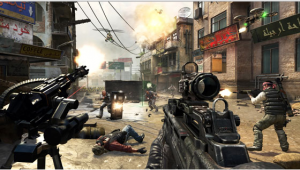The popular topic these past two weeks beyond the controversies of women in the Game Industry would have to be debating whether or not the term “gamer” needs to die. Many people feel that it has become a derogatory term and represents the worse parts of the video game culture.
In my opinion it’s not the word that’s the problem and either changing it or leaving it will not fix the systemic problem and why it seems our industry has a lot of bad apples in it.
Nerds/Gamers of a Feather…
To understand why our community is the way it is, we need to talk about our roots. Before the early 00s, people who favored technology over physicality were looked down on from social and pop culture perspectives.
It’s where the terms nerds, geeks and gamers were first ostracized. Even though nerds and gamers aren’t exactly the same, we did share common traits of being outcasts. What happened was we banded together and turned our respective insular names into badges of honor and at the same time created our little clubs. This is where things like “nerd culture” and “gamer culture” came from.
And up until the early 00s, our groups were closed off and we were left to our own devices while still being looked down and joked on by mainstream culture. This is where so much of the “foundations” of what games are and elements like our reliance on power fantasies came from.
While it may surprise some of you, yes women did play video games before the early 00s, they didn’t just “invade” in the last five years to change things. They were of course a much smaller number compared to the men and were a silent minority for a long time. Both men and women who were into video games were looked down on by popular culture, something I think a lot of people tend to forget.

Despite what you may feel about King in general, Candy Crush Saga is part of the new wave of games accessible to many.
Video games much like technology in general were hobbies for people who didn’t belong to the popular activities of the time and we created a passionate group for like minded people in the process.
When things began to open up over the last decade thanks to social games, mobile and just the general acceptance of pop culture, many thought that we would welcome these new people with open arms, unfortunately that wasn’t the case.
When Fighting Monsters…
Gamers, geeks, nerds or whatever you want to call them as we talked about were the outcasts who bonded over the fact that they weren’t accepted by the mainstream. When the Game Industry began to open up and people from both the outside and inside started to question elements like our reliance on power fantasies, violence and casual to overt sexism, it was treated like an attack on the group.
The extreme group of gamers who were once barred from groups are now the gatekeepers and are basically following the adage: An Eye for an Eye. They can’t see any problems with these issues because they have been left alone so long that they fully believe that this is not just their identity, but video games as a whole.
This is why they can’t understand that women were a part of the Game Industry for years now as if they were then they wouldn’t be complaining about these issues. A common outcry of whenever a woman writes a piece or talks critically about video games as a culture, is then questioning whether or not they actually play video games. This is also part of where this outcry against “fake gamer girls” is based on, as they believe that unless she’s fine with sexism, trash talking etc, then she is obviously lying about her interest in games.
But this isn’t the first time where the extreme questioned people, for years now there have been an outcry over “lesser games” ruining the industry and tainting video games.
Those games that opened the door for more people are the very ones that are held on a pedestal as ruining the industry. Incidentally, I have several friends of my family who are older and have never picked up a gamepad and probably never will, but love social games like Candy Crush Saga and Farmville. Would we call them gamers?
There are gamers who take offense to people who just play sports games and don’t view them as real gamers. There is definitely an elitist problem with the Game Industry, whether or not you want to admit it. Be it people trying to judge someone’s ” video game aptitude” or decrying that if you complain about sexism, then you’re not a gamer or have to prove it through arbitrary means.
And this is why I find the recent movement to get rid of the word “gamer” foolish, because changing the name is not going to change the mindset.
What’s in a Name?
It’s funny, despite playing video games for so long; I can’t remember the last time I referred to myself as a gamer, either in person or on any number of online sites. Even if we tear down the word, those people are just going to move to whatever word we come up with next, like internet trolls who get kicked off of one website. The problem with going after the word “gamer” is that the word isn’t the problem, but the specific mentality is.
That mindset that because you play certain games or belong to certain groups that it somehow makes you better than other people or have a greater say. And that you have the right to judge other people on account of that. As we’ve talked about, many people joined games communities because they were left out of other groups and it’s always disappointing to hear that instead of being better than that, that so many are just the same way as the people who kicked them out.

With the audience now growing, many tired cliches like the power fantasy is being called into question.
I can’t examine their psychology further as I don’t share that elitist viewpoint but whether they are expressing themselves out of rage or just to cause trouble isn’t the point.
We’ve been talking now for years about the Game Industry growing up and this last year has shown that we as an Industry are making headway by the fact that this hobby has opened up to so many. And that we still have a long way to go.
The majority of people who represent that extreme gamer mentality are starting to be out numbered as the hobby opens up, hence why they are so quick to defend any parts of games from so called attacks. It’s been reported by the ESA that the most popular demographic these days is not the 18-30 white male, but women over 18, with a good reason of that being the rise of more accessible titles like mobile and social games. And I bet for those so called “gamers” that scares them as it means their hobby is no longer this closed up members only group.
Unfortunately these recent issues are still going on but the only positive is that the more light that is shined on the Game Industry, that hopefully it will lead to the good people standing up and trying to make things better.



